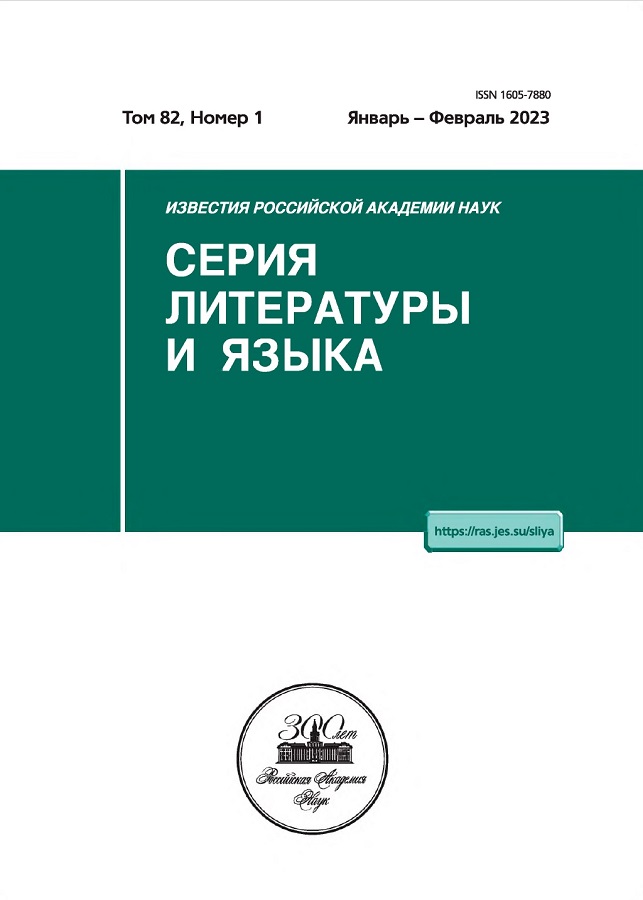On the Semantic Typology of Adjective Derivation in the Tungus-Manchu Languages
- Authors: Pimenova N.B.1
-
Affiliations:
- National Research University “Higher School of Economics”
- Issue: Vol 82, No 1 (2023)
- Pages: 24-36
- Section: Articles
- URL: https://rjonco.com/1605-7880/article/view/656986
- DOI: https://doi.org/10.31857/S160578800024638-7
- ID: 656986
Cite item
Abstract
The article deals with parameters for the study of adjectival derivation from the point of view of semantic typology. The bases of semantic typology of word formation and classification of derived adjectives are considered. It is shown that the parameters of “Eurocentric” standard classifications are shifted towards formal-content samples (derivative formant ~ formant value). The Tungus-Manchu languages demonstrate a possible system in which a significant role has the correlation between a (specialized) formant with a general meaning of ʻpropertyʼ and a limited semantic class of derivational bases. Of particular typological interest are the principles of semantic selection of derivational bases. In the Tungus-Manchu languages, there is a peculiar specialization of suffixes on bases with “perceptual” features (ʻcolorʼ, ʻtasteʼ, ʻsmellʼ, etc.), as well as on other core semantic types of adjectives. The distribution of individual characteristics of the Tungus-Manchu word formation within the language subgroup and against the areal background is traced.
Full Text
About the authors
Natalia B. Pimenova
National Research University “Higher School of Economics”
Author for correspondence.
Email: info@izv-oifn.ru
Russian Federation, 20 Myasnitskaya Str., Moscow, 101000
References
Supplementary files










